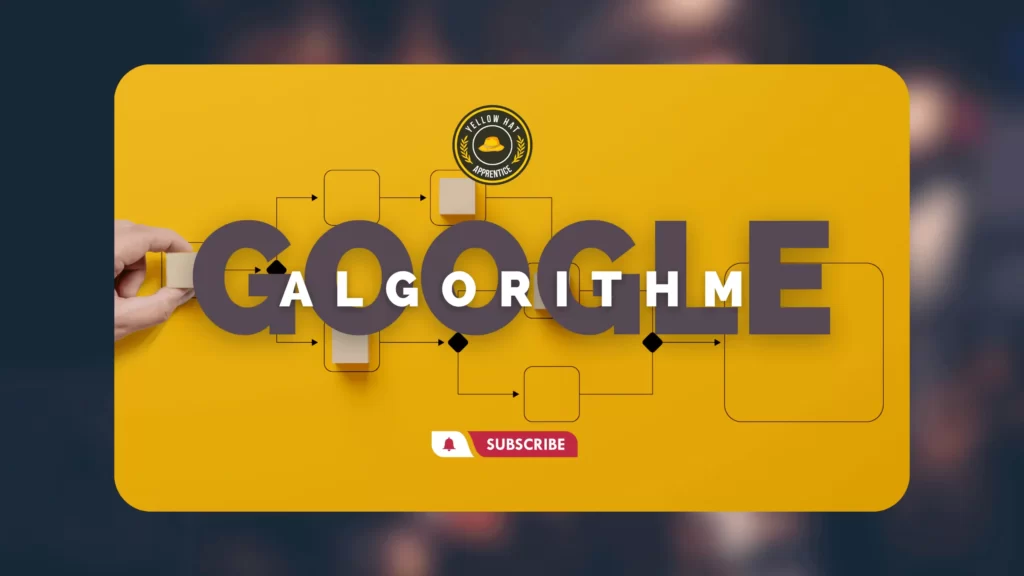Google Algorithm 2023 : The Magic Wand for Unbeatable SEO
August 1, 2023 | by John Corpuz


Google Algorithm: The Magic Wand for Unbeatable SEO
Welcome to our blog post on Google! Today, we are going to explore how this tool can be the magic wand for unbeatable Search Engine (SEO) for your small and medium enterprise. you are new to the concept of Google Algorithm or already familiar with it, this post will provide insights that will help you boost your online presence and reach target audience effectively. So, let’s dive in.
Introduction
What is Google Algorithm
Before we delve into the wonders of Google Algorithm, let’s take a moment to understand what it actually is. In simple terms, Google Algorithm is a complex set of rules and calculations used by the search engine giant to determine the ranking of web pages in its search results. It constantly evaluates and analyzes various factors to provide users with the most relevant and high-quality content based on their search query.
The Purpose :
The purpose of this blog post is to shed light on how Google Algorithm works, why it is crucial for your SEO efforts, and how you can optimize your website to make the most out of it. We will discuss various subtopics that will provide you with valuable insights and actionable tips to enhance your online visibility and drive organic traffic to your website. So, let’s get started!
Understanding Google Algorithm Updates
Google Algorithm is not a static entity. It undergoes frequent updates and changes to refine its search results and provide a better user experience. These updates often come with catchy names like Panda, Penguin, Hummingbird, and Fred. Each update targets specific aspects of websites and aims to reward high-quality content while penalizing spammy or low-quality websites
Panda: Quality Content Takes the Crown
One of the most significant updates in the history of Google Algorithm is Panda. Rolled out in 2011, Panda focused on combating low-quality content, content farms, and keyword stuffing. It revolutionized SEO by prioritizing websites that provided valuable, original, and informative content, while pushing down websites that relied on unethical practices to gain visibility.
To ensure you are on the right side of Panda, focus on creating high-quality content that engages and educates your audience. Conduct thorough keyword research to understand what your target audience is searching for, and create content that satisfies their needs. Incorporate relevant keywords naturally and provide a seamless user experience by optimizing your website’s loading speed, navigation, and mobile responsiveness.

Penguin: Link Building Redefined
Link building has always been an important aspect of SEO, but with the Penguin update in 2012, Google Algorithm became smarter in detecting and penalizing spammy link-building practices. Penguin emphasized the importance of natural, high-quality backlinks and discouraged the use of paid links, link schemes, and irrelevant guest blogging.
To stay in Penguin’s good books, focus on building genuine relationships with other websites in your industry. Guest blogging on reputable websites, participating in industry forums, and creating valuable content that naturally attracts backlinks can help you build a strong and authoritative online presence. Remember, quality is always better than quantity when it comes to link building.

Hummingbird: Conversational Queries and the Power of Intent
Launched in 2013, Hummingbird brought a significant shift in the way Google Algorithm understood search queries. It focused on understanding the context and intent behind a user’s search rather than relying solely on the individual keywords. Hummingbird paved the way for the rise of voice searches and longer, conversational queries.
To make the most out of Hummingbird, optimize your website for natural language queries and conversational content. Long-tail keywords that mimic how users speak or ask questions can help you rank higher in searches that are more intent-driven. Make your content easy to read and understand, ensuring it serves as a valuable resource that directly answers your target audience’s questions.

Fred: Content Quality Strikes Again
In 2017, Google Algorithm introduced Fred, an update that once again emphasized the importance of high-quality content. Fred aimed to demote websites that focused primarily on generating ad revenue instead of providing valuable information to users. It targeted aggressive ad placements, thin content, and low-value affiliate websites.
To avoid falling victim to Fred’s penalties, prioritize user experience and provide valuable content that keeps your audience engaged. Balance your website’s ad placements, ensuring they do not interfere with the user’s ability to consume your content. Focus on solutions and insights rather than promoting products or services excessively. Remember, your audience’s satisfaction should be your priority, not just ad revenue.
Optimizing Your Website for Google Algorithm Success
Now that we have explored some key Google Algorithm updates and their implications, let’s discuss how you can optimize your website to increase its chances of ranking higher in search results.
Essential On-Page Optimization Techniques
On-page optimization plays a crucial role in improving your website’s visibility in search results. By following these essential techniques, you can make your website more search engine-friendly and user-friendly.
1. Keyword Research and Optimization
Identify relevant keywords and incorporate them naturally throughout your website’s content, meta tags, titles, headings, and URLs. Optimize your images with descriptive alt text and file names that include relevant keywords.

2. High-Quality and Engaging Content
Producing high-quality and engaging content is essential for both your users and search engines. Create informative, unique, and well-structured content that serves the needs of your target audience. Use headings, bullet points, and visuals to make your content easily scannable.
3. Page Speed Optimization
Optimize your website’s loading speed to ensure a seamless user experience. Compress images, minify CSS and JavaScript files, and leverage browser caching to reduce load times. Google Algorithm gives preference to websites with better loading speeds.
4. Mobile Responsiveness and Usability
With the increase in mobile usage, it is crucial to have a website that is mobile-responsive and provides an optimal user experience across different devices. Test your website’s mobile-friendliness using Google’s mobile-friendly test and make necessary adjustments.
Building Authority and Establishing Trust
Building authority and establishing trust are important factors in winning Google Algorithm’s favor. When your website is seen as a reliable and authoritative source, search engines are more likely to rank it higher in search results. Here are some tips to help you achieve this:
1. Genuine Backlink Building
Focus on building genuine backlinks from reputable websites in your industry. Reach out to influencers, industry experts, and bloggers to collaborate and generate high-quality backlinks. Create valuable content that naturally attracts backlinks from other authoritative websites.
2. Social Media Engagement
Engage with your target audience on social media platforms to build trust and establish your brand’s authority. Respond to comments and messages promptly, share valuable content, and actively participate in industry conversations and communities.
3. User Experience Optimization
Always prioritize user experience when designing and optimizing your website. Ensure easy navigation, clear call-to-actions, and intuitive design. Monitor user behavior metrics, such as bounce rates and time on page, to identify areas for improvement.
Staying Informed and Adapting to Changes
Google Algorithm is dynamic and constantly evolving. To stay ahead of the competition, it is essential to stay informed about the latest updates and trends. Subscribe to reputable SEO blogs, follow industry experts on social media, and participate in relevant forums or communities to keep yourself updated. Regularly monitor your website’s performance using tools like Google Analytics and make necessary adjustments based on the insights gained.
Conclusion: Unlocking the Power of Google Algorithm
In conclusion, Google Algorithm can indeed be the magic wand for unbeatable SEO for your small and medium enterprise. By understanding its updates, optimizing your website, and staying informed, you can enhance your online presence, reach your target audience effectively, and drive organic traffic to your website. Remember, providing valuable, high-quality content and prioritizing user experience are the keys to success. So, roll up your sleeves and delve into the enchanting world of Google Algorithm to unlock the true potential of your online presence.
Now that you have gained valuable knowledge about Google Algorithm and its impact on your SEO efforts, it’s time to put it into action. Start implementing the tips and techniques discussed in this post, monitor your website’s performance, and adapt as necessary. With persistence and dedication, you can achieve unbeatable SEO success and propel your small and medium enterprise to new heights.
Keep exploring, keep learning, and let the magic of Google Algorithm work wonders for your online visibility and growth!
Please note that while the tips and techniques provided in this blog post are based on extensive research and industry best practices, individual results may vary. It is always recommended to consult with an SEO professional for a comprehensive analysis and tailored strategies based on your unique business needs.
RELATED POSTS
View all
Enterprise SEO 101: The Effect of AI in 2023 – Ultimate Guide
June 14, 2023 | by Wilson Caparas
Machine Learning and SEO: A Digital Match Made in 2023
June 14, 2023 | by John Corpuz
Ready to start?
For any questions, please don’t hesitate to email us at support@YellowHatApprentice.com





